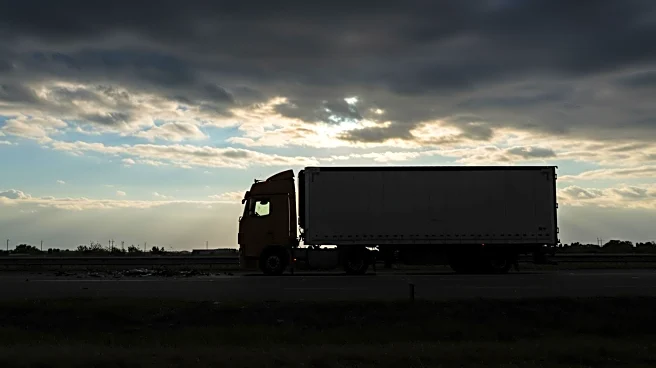What is the story about?
What's Happening?
A truck driver, Harjinder Singh, has been denied bond following a fatal crash in Florida that resulted in the deaths of three individuals. Singh, who is accused of making an illegal U-turn, faces charges of vehicular homicide and immigration violations. The incident has sparked a dispute between Florida authorities and California Governor Gavin Newsom, as Singh reportedly obtained a work permit and driver's license in California, despite being in the U.S. illegally according to the Trump administration. Singh is currently held in St. Lucie County Jail, with U.S. Immigration and Customs Enforcement placing a hold on him. The case has intensified discussions on immigration policies, particularly concerning the issuance of driver's licenses to undocumented immigrants.
Why It's Important?
This case highlights ongoing tensions between state and federal immigration policies. California's decision to issue driver's licenses regardless of immigration status is under scrutiny, with critics arguing it undermines federal immigration laws. The incident also underscores the broader debate on public safety and the responsibilities of states in regulating who can legally operate vehicles. The outcome of this case could influence future policy decisions and legislative actions regarding immigration and public safety, affecting both state governance and federal immigration enforcement.
What's Next?
Federal officials are investigating how Singh obtained his commercial driver's license. The case may prompt legislative reviews or changes in states that issue licenses to undocumented immigrants. Political leaders, particularly in states with similar policies, may face pressure to reassess their stance. The case could also lead to increased collaboration or conflict between state and federal authorities on immigration enforcement.
Beyond the Headlines
The incident raises ethical questions about the balance between public safety and the rights of undocumented immigrants. It also highlights the potential consequences of policy decisions on individuals and communities. The case may influence public opinion on immigration reform and the role of states in shaping immigration policy.

















